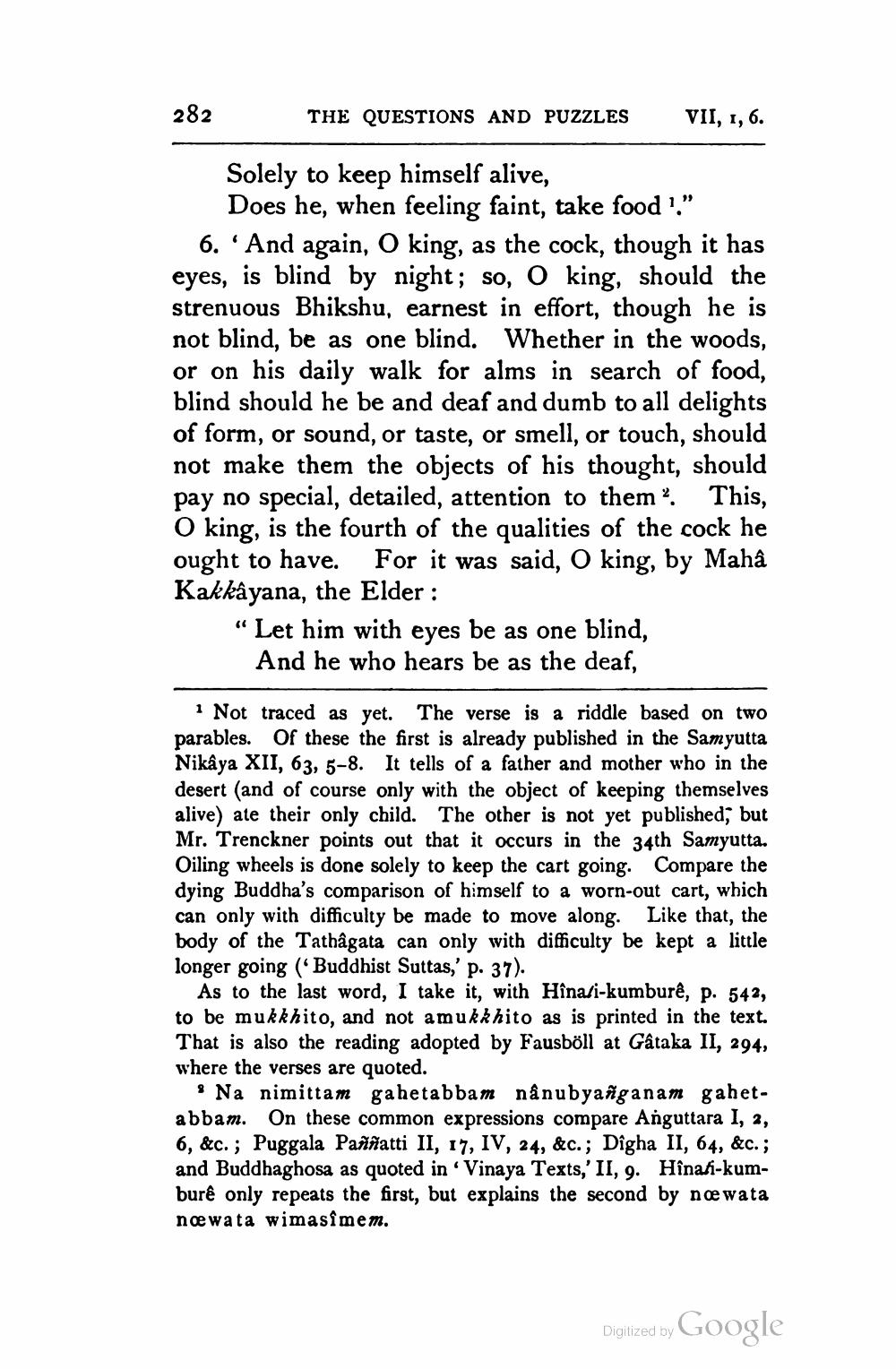________________
282
THE QUESTIONS AND PUZZLES
VII, 1, 6.
Solely to keep himself alive,
Does he, when feeling faint, take food ?." 6. 'And again, O king, as the cock, though it has eyes, is blind by night; so, O king, should the strenuous Bhikshu, earnest in effort, though he is not blind, be as one blind. Whether in the woods, or on his daily walk for alms in search of food, blind should he be and deaf and dumb to all delights of form, or sound, or taste, or smell, or touch, should not make them the objects of his thought, should pay no special, detailed, attention to them? This, O king, is the fourth of the qualities of the cock he ought to have. For it was said, O king, by Maha Kakkâyana, the Elder :
“Let him with eyes be as one blind,
And he who hears be as the deaf,
i Not traced as yet. The verse is a riddle based on two parables. Of these the first is already published in the Samyutta Nikâya XII, 63, 5-8. It tells of a father and mother who in the desert (and of course only with the object of keeping themselves alive) ate their only child. The other is not yet published, but Mr. Trenckner points out that it occurs in the 34th Samyutta. Oiling wheels is done solely to keep the cart going. Compare the dying Buddha's comparison of himself to a worn-out cart, which can only with difficulty be made to move along. Like that, the body of the Tathagata can only with difficulty be kept a little longer going Buddhist Suttas,' p. 37).
As to the last word, I take it, with Hina/i-kumburê, p. 542, to be mukkhito, and not amukkhito as is printed in the text. That is also the reading adopted by Fausböll at Gataka II, 294, where the verses are quoted.
. Na nimittam ga hetabbam nânubyañganam gahetabbam. On these common expressions compare Anguttara 1, 2, 6, &c.; Puggala Paññatti II, 17, IV, 24, &c.; Digha II, 64, &c.; and Buddhaghosa as quoted in Vinaya Texts,' II, 9. Hînah-kumburê only repeats the first, but explains the second by newata nowata wimasîmem.
Digitized by Google




